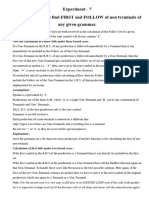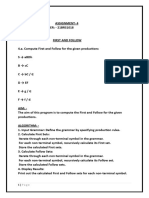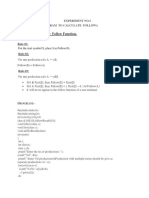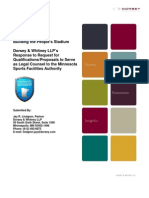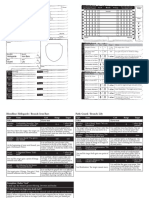0% found this document useful (0 votes)
18 views20 pagesCD File
The document contains multiple C programs aimed at various tasks related to grammar and parsing, including generating verbs from words, finding leading and trailing terminals, computing FIRST and FOLLOW sets, building parse trees, validating strings against grammars, and removing left recursion. Each program is accompanied by source code and a brief description of its aim. The programs utilize standard libraries and data structures to achieve their respective functionalities.
Uploaded by
super rcssn hindiCopyright
© © All Rights Reserved
We take content rights seriously. If you suspect this is your content, claim it here.
Available Formats
Download as PDF, TXT or read online on Scribd
0% found this document useful (0 votes)
18 views20 pagesCD File
The document contains multiple C programs aimed at various tasks related to grammar and parsing, including generating verbs from words, finding leading and trailing terminals, computing FIRST and FOLLOW sets, building parse trees, validating strings against grammars, and removing left recursion. Each program is accompanied by source code and a brief description of its aim. The programs utilize standard libraries and data structures to achieve their respective functionalities.
Uploaded by
super rcssn hindiCopyright
© © All Rights Reserved
We take content rights seriously. If you suspect this is your content, claim it here.
Available Formats
Download as PDF, TXT or read online on Scribd
/ 20



















